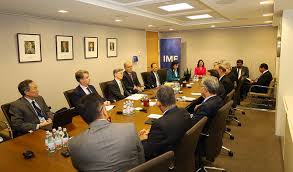
In a bold move to modernize its gambling regulations, Pakistan has reached out to international experts to help reform its outdated gambling laws. This step reflects the country’s growing recognition of the need for comprehensive reforms that can regulate and manage gambling activities effectively, balancing economic opportunities with social responsibility. The reform efforts are aimed at making the country’s gambling laws more aligned with global standards while addressing concerns surrounding addiction, illegal gambling, and the growing demand for regulation in the digital age.
The Need for Reform
Pakistan’s gambling laws have remained largely unchanged for decades. In a country where gambling activities are heavily restricted and often illegal, a significant portion of the population still engages in various forms of gambling, including sports betting, card games, and online gambling. With the rise of digital platforms and the growing popularity of online casinos, the existing laws are proving to be inadequate in dealing with the complexities of modern gambling.
The government’s decision to engage international experts highlights the need for a comprehensive approach to gambling reform. These experts will bring valuable knowledge from jurisdictions that have successfully implemented modern gambling regulations, offering Pakistan the opportunity to learn from best practices globally.
Why International Experts?
International experts are being sought to help Pakistan craft a balanced regulatory framework that can effectively address the challenges posed by modern gambling. These experts have extensive experience in dealing with the intricacies of gambling laws, from licensing and taxation to preventing gambling addiction and illegal activities.
Experts from regions with established gambling industries, such as Europe, the United States, and parts of Asia, are in a unique position to advise Pakistan. They bring deep insights into how gambling laws can be structured to both protect consumers and generate revenue for the government. With global gambling laws continuously evolving, Pakistan’s collaboration with international professionals ensures that their reform process is both forward-thinking and adaptable.
Key Areas of Focus for Reform
- Regulating Online Gambling
With the surge in popularity of online gambling platforms, Pakistan faces a pressing need to regulate the online gambling market. International experts will likely focus on creating laws that govern online casinos, sports betting, and poker games. These regulations could include licensing requirements for operators, transparency in transactions, and consumer protection measures to prevent fraud and ensure fairness. - Combatting Illegal Gambling
Despite the existing laws against gambling, illegal activities continue to thrive in Pakistan. From underground casinos to unlicensed online gambling websites, these illicit activities often operate without oversight, putting players at risk. International experts can offer insights into how Pakistan can curb illegal gambling through effective enforcement strategies, monitoring tools, and public awareness campaigns. - Ensuring Responsible Gambling
One of the primary concerns with gambling is its potential for addiction. International experts are expected to assist Pakistan in developing a robust framework for promoting responsible gambling. This could include setting up counseling services, self-exclusion programs, and public education initiatives to raise awareness about the risks associated with gambling. - Taxation and Revenue Generation
Legalizing and regulating gambling can be a significant source of revenue for the government. However, it requires careful thought on how to structure the taxation system to maximize benefits while ensuring that the industry remains attractive to both operators and players. International experts can advise on creating a fair and competitive tax regime that supports the government’s objectives while fostering a thriving legal gambling market. - Cultural and Religious Considerations
Gambling laws in Pakistan must also take into account the country’s cultural and religious norms, where gambling is generally viewed as morally and ethically unacceptable. International experts can provide guidance on how to craft laws that respect these sensitivities while still allowing for the growth of a regulated gambling market.
Potential Benefits of Reform
The reform of Pakistan’s gambling laws could bring numerous benefits to the country, both economically and socially. Here are some of the potential advantages:
- Economic Growth
A regulated gambling industry could become a new revenue stream for the government. By attracting both local and international operators, Pakistan could benefit from licensing fees, taxes, and increased tourism. This revenue could be reinvested into public services, infrastructure, and social programs. - Job Creation
The gambling industry could create thousands of new jobs in sectors such as hospitality, technology, marketing, and law enforcement. With proper regulation and oversight, this could lead to a boost in employment opportunities, especially in the regions where casinos or online platforms are established. - Improved Consumer Protection
Legalizing and regulating gambling would give consumers legal recourse in case of disputes or unfair practices. It would also help in ensuring that operators adhere to ethical standards, providing a safer and more secure environment for players. - Enhanced International Reputation
By implementing modern gambling laws, Pakistan could position itself as a more progressive and business-friendly country. This could improve its international reputation, attracting investment and making it a more appealing destination for international tourists.
Challenges Ahead
While the potential benefits are clear, there are significant challenges ahead in the reform process. One of the main hurdles will be balancing the economic potential of gambling with the country’s cultural and religious values. Public opposition to gambling, particularly in more conservative areas, could make it difficult for the government to push through significant reforms.
Additionally, enforcement will be a key concern. With the rapid rise of online gambling, Pakistan will need to ensure that it has the tools and resources to effectively monitor and regulate the industry. This includes setting up regulatory bodies, investing in technology, and training personnel to oversee the implementation of the new laws.
Conclusion
Pakistan’s decision to approach international experts for help in reforming its gambling laws is a pivotal step in the country’s efforts to modernize and regulate the industry. By drawing on the expertise of professionals from established gambling markets, Pakistan hopes to create a balanced and sustainable framework that addresses both the opportunities and challenges posed by gambling. While the reform process will not be without its challenges, the potential economic and social benefits make it an important undertaking for the future of Pakistan’s gaming industry. As the government works to craft these new laws, it will be crucial to maintain an open dialogue with all stakeholders, including the public, businesses, and religious groups, to ensure that the reforms are both effective and socially responsible.
Unlock Big Wins with Top Casino Games at KKClub.pk


